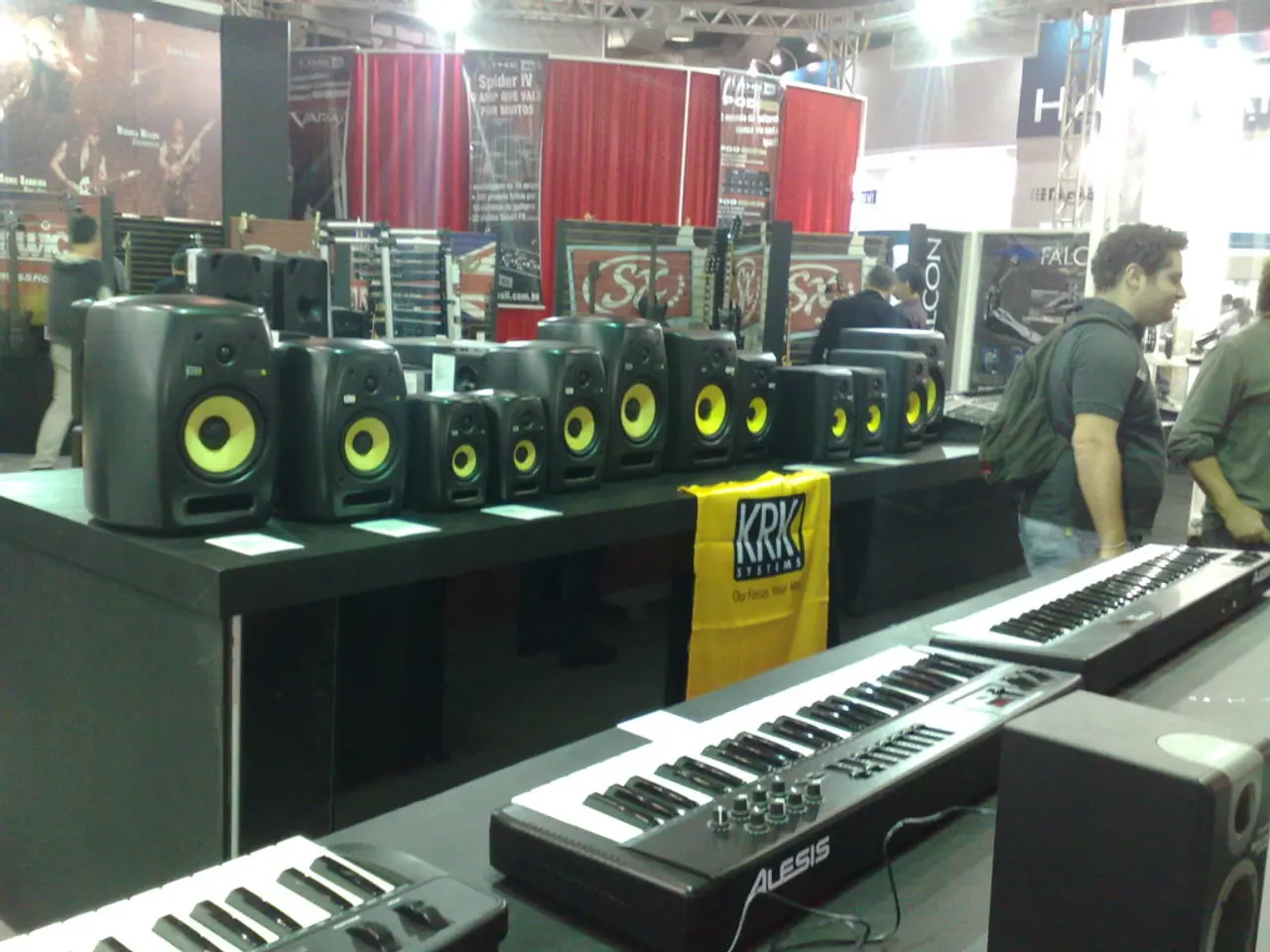Participants Claim Sweepstakes Casinos Are Representing Illicit Gaming Operations
In the world of online gaming, a notable shift is underway. Sweepstakes casinos, such as Chumba Casino and Luckyland Slots, are withdrawing from several states that are tightening their regulations on these platforms [1]. States like Montana, Connecticut, Washington, Michigan, Idaho, Nevada, New York, and Delaware are cracking down on sweepstakes casinos, viewing them as a form of unregulated gambling.
A recent study by Sensor Tower, compiled by the American Gaming Association (AGA), reveals some striking statistics. Around 80% of users spend money monthly, and nearly half spend weekly, on sweepstakes games without the protection of regulated safeguards [1]. Moreover, 90% of sweepstakes players perceive the activity as gambling [1].
The regulatory landscape is becoming increasingly complex. While over 45 states allow sweepstakes casinos as social gaming platforms, several states are introducing or passing legislation to restrict or ban them [2]. For instance, Idaho and Washington currently ban sweepstakes casinos, and Connecticut and Montana will join this list as of October 1, 2025 [2].
States like Florida, Louisiana, Arizona, Pennsylvania, Nevada, Maryland, New York, and California have taken aggressive regulatory actions, including cease-and-desist orders, increased penalties, and proposed or enacted bans targeting sweepstakes operators, affiliates, and associated parties [2][3].
The debate revolves around whether sweepstakes casinos exploit legal loopholes to offer gambling-like experiences without proper oversight or licensing. Some states and tribal gaming groups argue that this infringes on their exclusive regulatory rights, especially in regions with established gambling industries [3].
Louisiana's governor vetoed an anti-sweeps bill but stated that current laws are sufficient to keep these operations illegal [1]. However, the future of sweepstakes casinos remains uncertain, with growing legislative efforts to classify and regulate them as gambling or outright ban them in multiple states [2][3].
Players must comply with age restrictions (typically 18 or 21) and often undergo identity verification before withdrawing prizes, reflecting increasing regulatory scrutiny [1]. It's essential for players to stay informed about the evolving regulatory landscape to ensure they are playing within the law.
In recent developments, Connecticut has also passed a law to ban sweepstakes casinos, making Montana the first state to do so [2]. As the regulatory environment continues to evolve, it's clear that sweepstakes casinos will face challenges in the coming years.
[1] https://www.agamobile.com/press-releases/agamobile-releases-new-study-finding-that-90-of-sweepstakes-players-perceive-the-activity-as-gambling
[2] https://www.iijgaming.com/news/sweepstakes-casinos-face-growing-regulatory-scrutiny-across-the-us/
[3] https://www.forbes.com/sites/jasonzweig/2021/09/17/sweepstakes-casinos-are-gambling-and-the-states-are-cracking-down/?sh=4a2b32e33094
[4] https://www.gambling.com/news/sweepstakes-casinos-legal-status-in-the-us/
- As gambling trends shift, the clash between sweepstakes casinos like Chumba Casino and Luckyland Slots, and states tightening their regulations on these operations continues.
- Amidst this, a study by Sensor Tower, commissioned by the American Gaming Association (AGA), reveals that almost 90% of sweepstakes players perceive these games as gambling.
- While over 45 states view sweepstakes casinos as social gaming platforms, states like Idaho, Washington, Connecticut, and Montana have banned these establishments, with Montana being the first to do so.
- In contrast, states such as Louisiana have taken a more lenient stance, with their governor vetoing an anti-sweeps bill, asserting that existing laws are sufficient to keep these operations illegal.
- Many see sweepstakes casinos as exploiting legal loopholes to offer gambling-like experiences without proper oversight or licensing, thereby infringing on exclusive regulatory rights in established gambling regions.
- With the regulatory landscape becoming increasingly complex, sports betting enthusiasts watch this battle closely, as the future of sweepstakes casinos in casino-culture, including Las Vegas, remains uncertain due to growing legislative efforts classifying and regulating them, or imposing outright bans in multiple states.




